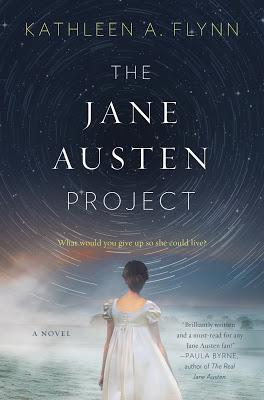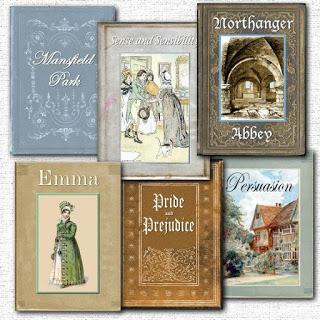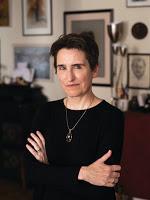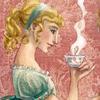 Time travel and Jane Austen. It sounds like the perfect match for an intriguing story. How did you come to write The Jane Austen Project?
Time travel and Jane Austen. It sounds like the perfect match for an intriguing story. How did you come to write The Jane Austen Project? Thanks for your kind words, Maria Grazia! I hope people will find it so. Although it took a long time to write this book, the idea came to me in a flash. One night lying awake I started thinking about Jane Austen: how sad it was that she died so comparatively young, and how unfortunate for scholars that the majority of her letters were destroyed. What a genius she was, stuck in a time and place with little use for intelligent women, and how frustrating that must have been for her. But what was she really like? I found mself wondering. If only we could build a time machine, and go back and get some answers! One piece of advice I’ve taken to heart is that you should write the sort of book you want to read, and I’ve always been happiest with books with fantastical elements, yet grounded in reality, whether historical, mythological or emotional. I am thinking of novels like “The Doomsday Book,” or “Jonathan Strange and Mr. Norrell” or “The Golem and the Jinni.” Time travel is a crazy idea, but it seemed like a powerful metaphor about being human. We are all time travelers, but usually it’s a one-way trip.Before we focus on Jane Austen as a character in your book, could you tell us something more about Liam and Rachel, your time travellers who are lucky enough to meet her?I’ve always seen Rachel and Liam like characters in one of those screwball comedies from the 1930s – mismatched and sparring, yet with complementary strengths, eventually finding their way to respect and affection. Rachel is a physician, with a love of adventure and of Jane Austen. She’s competent and feisty, not quite prepared for how limiting it is to be a woman in 1815. Because the story is told in Rachel’s first-person, we see Liam only as Rachel does, and he’s not someone who likes to talk about himself. So part of the story is the unfolding of Liam’s character to Rachel and to the reader. He is an academic who used to be an actor, and despite his reserved nature he’s good at assuming a part. It’s useful in the mission, but it starts to drive Rachel crazy – she wants to know who he “really” is. But how do we ever know that? What does it mean, to know another person, when it is hard even to know ourselves?
You and Jane Austen. What was your first encounter with her work?I first read “Pride and Prejudice” when I was about 12, not knowing anything about it except that it was famous, and immediately loved it. I still have that tattered paperback – a cheap Cardinal edition from 1952, original price 35 cents, which I found in a bookshelf of my grandmother’s house and appropriated, underlining the funny passages. It’s crumbling now and I don’t read it, but I keep it around. Do you have a favorite Austen novel? What about your favorite hero/heroine?Each one has its special delights. I love how gleefully metafictional “Northanger Abbey” is. I love the clever way Austen misdirects the reader in “Emma,” the doubleness of “Sense and Sensibility,” how “Mansfield Park” refuses us easy answers, the satisfying manner that Anne is finally rewarded in “Persusasion.” I love “Pride and Prejudice” for its wit and its heart. Each time I reread any of them I find something new.
Do you have a favorite Austen novel? What about your favorite hero/heroine?Each one has its special delights. I love how gleefully metafictional “Northanger Abbey” is. I love the clever way Austen misdirects the reader in “Emma,” the doubleness of “Sense and Sensibility,” how “Mansfield Park” refuses us easy answers, the satisfying manner that Anne is finally rewarded in “Persusasion.” I love “Pride and Prejudice” for its wit and its heart. Each time I reread any of them I find something new. I love all Austen’s heroes (even Edmund Bertram) but I think Henry Tilney would be the one to spend a lifetime with, because he would make me laugh. Of all the heroines, Marianne might be my favorite, maybe because she seems the least suited for life in the early 19th century. She’s so unabashedly intelligent, so fierce, so affectionate. I could imagine her living in the dorm with me in college – she’d be the one bringing unsuitable men home and having noisy sex, but also winning literary prizes and acting in an experimental theaterical troupe and volunteering at a soup kitchen. You’d think she was really annoying, until you got to know her heart.How difficult was it for you to write Jane Austen as a character, especially in the last years of her life? In some ways Jane Austen is such a mystery, but in others she’s so accessible. In the letters, especially, you almost feel in her presence, the quick play of her mind, the delight she takes in mundane things --- she spends a surprising amount of time in her letters to Cassandra talking about things like housekeeping and fashion. The danger is that she is so famous that everyone has an opinion about what she should be like, and in creating her as a fictional character you are bound to disapppoint someone. The last years of her life seem particuarly interesting and poignant, and I knew even in the early stages of imagining a time-travel voyage to find her that we would meet older Jane. In 1815 she has finally come into herself; she is acknowledged as the writer she long knew herself to be. I imagine her as happy and fulfilled, finally with a little money to call her own, at the height of her powers. The real artistic license I took was that she would probably not warm up so easily to some rich new friends of her brother’s: the evidence suggests that she was guarded with people who were not family or very old friends. That would have made the story much less interesting, though.If you could travel back to the Regency like the protagonists of your novel- what would you like to do or see - what would you miss the most from your life?I’d love to just walk around looking at the shops and the people and the life – London, on a Sunday afternoon. I’ve done this so many times in my imagination that it would be interesting to see what I got wrong or right. I’d also enjoy traveling by post-chaise, seeing the landscape before the railways and later highways transformed it. Maybe I could go for a seaside vacation, and use a bathing machine. And how fascinating it would be to go to the theater -- imagine seeing Shakespeare filtered through the imagination of the people of 1815! I’m curious, too, about the how the food would taste. I imagine it would in some cases be much better – fresh and local – and other times much worse, either starting to go bad, or adulterated, something that apparently happened a lot, in the absence of any food-safety regulations. What I would miss most is easy: the freedom and rights that women enjoy today compared to then. I would also miss running water, tampons and antibiotics. That's all Kathleen. Thank you so much for being my guest and good luck with the release of your book.Thank you so much for these questions! They were fun to think about. And thank you for asking me to be on your wonderful blog!
About The Jane Austen Project
Perfect for fans of Jane Austen, this engrossing debut novel offers an unusual twist on the legacy of one of the world's most celebrated and beloved authors: two researchers from the future are sent back in time to meet Jane and recover a suspected unpublished novel.London, 1815: Two travelers—Rachel Katzman and Liam Finucane—arrive in a field in rural England, disheveled and weighed down with hidden money. Turned away at a nearby inn, they are forced to travel by coach all night to London. They are not what they seem, but rather colleagues who have come back in time from a technologically advanced future, posing as wealthy West Indies planters—a doctor and his spinster sister. While Rachel and Liam aren’t the first team from the future to “go back,” their mission is by far the most audacious: meet, befriend, and steal from Jane Austen herself.Carefully selected and rigorously trained by The Royal Institute for Special Topics in Physics, disaster-relief doctor Rachel and actor-turned-scholar Liam have little in common besides the extraordinary circumstances they find themselves in. Circumstances that call for Rachel to stifle her independent nature and let Liam take the lead as they infiltrate Austen’s circle via her favorite brother, Henry.But diagnosing Jane’s fatal illness and obtaining an unpublished novel hinted at in her letters pose enough of a challenge without the continuous convolutions of living a lie. While her friendship with Jane deepens and her relationship with Liam grows complicated, Rachel fights to reconcile the woman she is with the proper lady nineteenth-century society expects her to be. As their portal to the future prepares to close, Rachel and Liam struggle with their directive to leave history intact and exactly as they found it…however heartbreaking that may prove.Praise for The Jane Austen Project
“What lover of literature hasn’t dreamed of going back in time to meet Jane Austen? In her debut novel, Kathleen A. Flynn brings this dream to life, creating a vivid portrait of Regency England in all its glory and squalor. Flynn illuminates the stark contrasts between that era and our own, and movingly depicts the heartbreak of those who might try to travel between the two.” — Lauren Belfer, author of And After the Fire and A Fierce Radiance“The Jane Austen Project is clever, captivating, and original. I loved it and couldn’t put it down! It’s been a long time since I’ve been so engrossed in a novel, or lost so much sleep reading it. Who wouldn’t want to travel back in time and meet Jane Austen? Flynn’s depiction of Jane Austen is wonderful, exactly as I imagine she must have been. The ending is a shocker and one of the strengths of the novel. It presents a view of time travel—and history—you won’t soon forget. A keeper on my Austen shelf.” — Syrie James, author of Jane Austen’s First Love “I loved The Jane Austen Project. Brilliantly written and a must-read for any Jane Austen fan!” — Paula Byrne, author of The Real Jane Austen
“I loved The Jane Austen Project. Brilliantly written and a must-read for any Jane Austen fan!” — Paula Byrne, author of The Real Jane Austen
